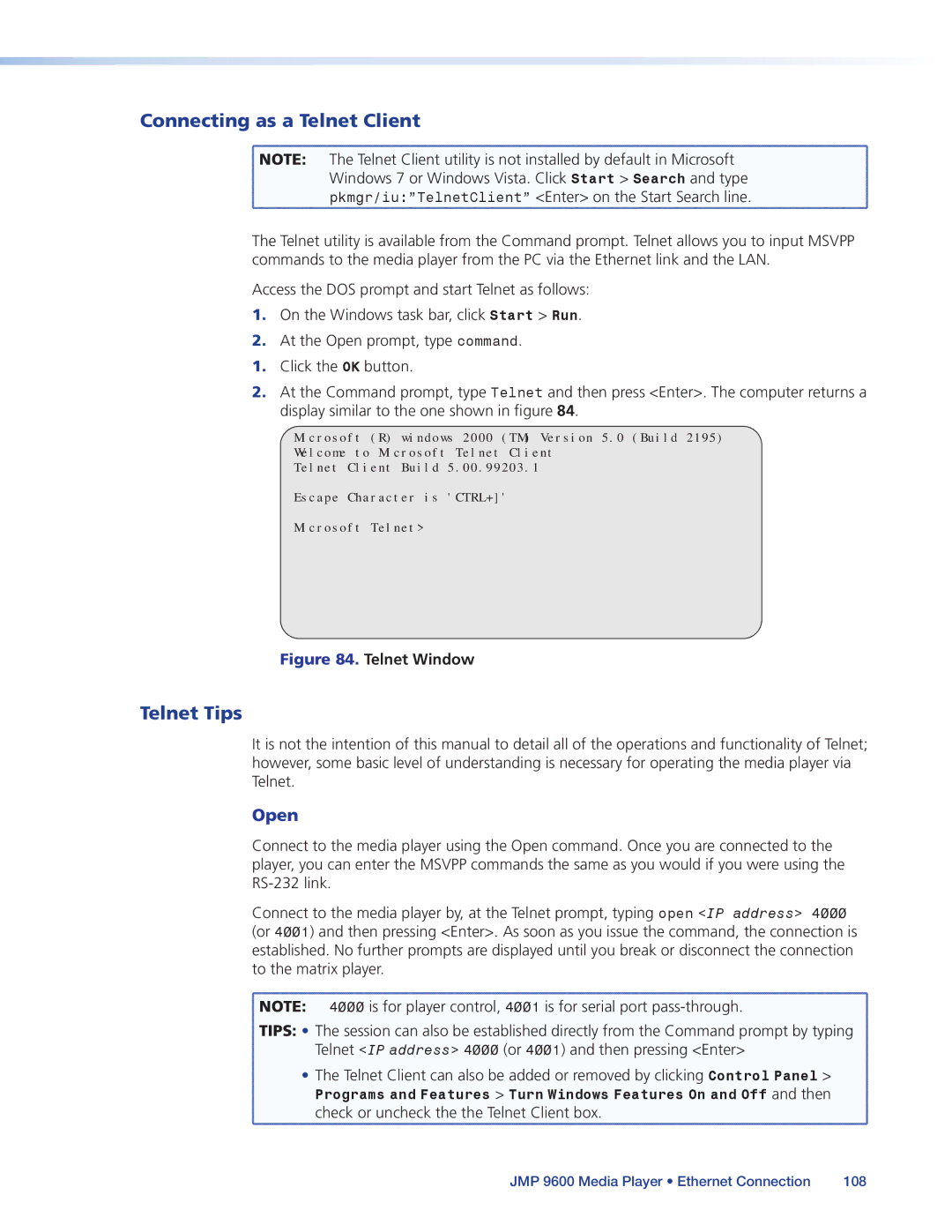
Connecting as a Telnet Client
![]() NOTE: The Telnet Client utility is not installed by default in Microsoft
NOTE: The Telnet Client utility is not installed by default in Microsoft
Windows 7 or Windows Vista. Click Start > Search and type pkmgr/iu:”TelnetClient” <Enter> on the Start Search line.
The Telnet utility is available from the Command prompt. Telnet allows you to input MSVPP commands to the media player from the PC via the Ethernet link and the LAN.
Access the DOS prompt and start Telnet as follows:
1.On the Windows task bar, click Start > Run.
2.At the Open prompt, type command.
1.Click the OK button.
2.At the Command prompt, type Telnet and then press <Enter>. The computer returns a display similar to the one shown in figure 84.
Microsoft (R) windows 2000 (TM) Version 5.0 (Build 2195)
Welcome to Microsoft Telnet Client
Telnet Client Build 5.00.99203.1
Escape Character is 'CTRL+]'
Microsoft Telnet>
Figure 84. Telnet Window
Telnet Tips
It is not the intention of this manual to detail all of the operations and functionality of Telnet; however, some basic level of understanding is necessary for operating the media player via Telnet.
Open
Connect to the media player using the Open command. Once you are connected to the player, you can enter the MSVPP commands the same as you would if you were using the
Connect to the media player by, at the Telnet prompt, typing open <IP address> 4000 (or 4001) and then pressing <Enter>. As soon as you issue the command, the connection is established. No further prompts are displayed until you break or disconnect the connection to the matrix player.
![]() NOTE: 4000 is for player control, 4001 is for serial port
NOTE: 4000 is for player control, 4001 is for serial port
![]() TIPS: • The session can also be established directly from the Command prompt by typing
TIPS: • The session can also be established directly from the Command prompt by typing
Telnet <IP address> 4000 (or 4001) and then pressing <Enter>
• The Telnet Client can also be added or removed by clicking Control Panel > Programs and Features > Turn Windows Features On and Off and then check or uncheck the the Telnet Client box.
JMP 9600 Media Player • Ethernet Connection | 108 |
